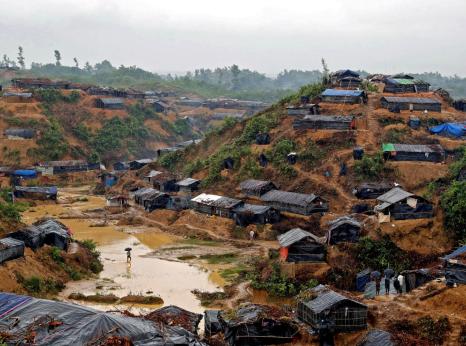SECURITY AND FREEDOM OF MOVEMENT FOR THE ROHINGYA REFUGEES

More than 740,000 Rohingya women, men and children fled northern Rakhine State to neighboring Bangladesh, when in August 2017 Myanmar security forces launched a widespread and systematic assault on Rohingya villages, including extrajudicial killings, destruction of properties and sexual assault. The onslaught came in the wake of a series of what the military claims were insurgent attacks on police posts.
Taking into account previous decades of violence against the Rohingya, an estimated one million Rohingya refugees now live in Bangladesh, while many of their homes in Rakhine State have been destroyed without a trace.
“We face enormous hardship in the refugee camps,” San thai Shin, a Rohingya refugee in Bangladesh’s Cox’s Bazar camp, told Amnesty International in June.
“Our people are losing their lives to gang violence in the refugee camps, in environmental calamity, or by taking dangerous attempts to migrate to other countries through the deadly seas and other means.”
Authorities in Bangladesh must ensure that the Rohingya community is involved in all decisions affecting their lives and rights.
Journalists, representatives of the United Nations and civil society organisations, must be given unhindered access to the camps to independently assess the situation of the Rohingya.
The government must uphold the principle of non-refoulement and ensure that the Rohingya refugees are not sent to a place which is not safe.